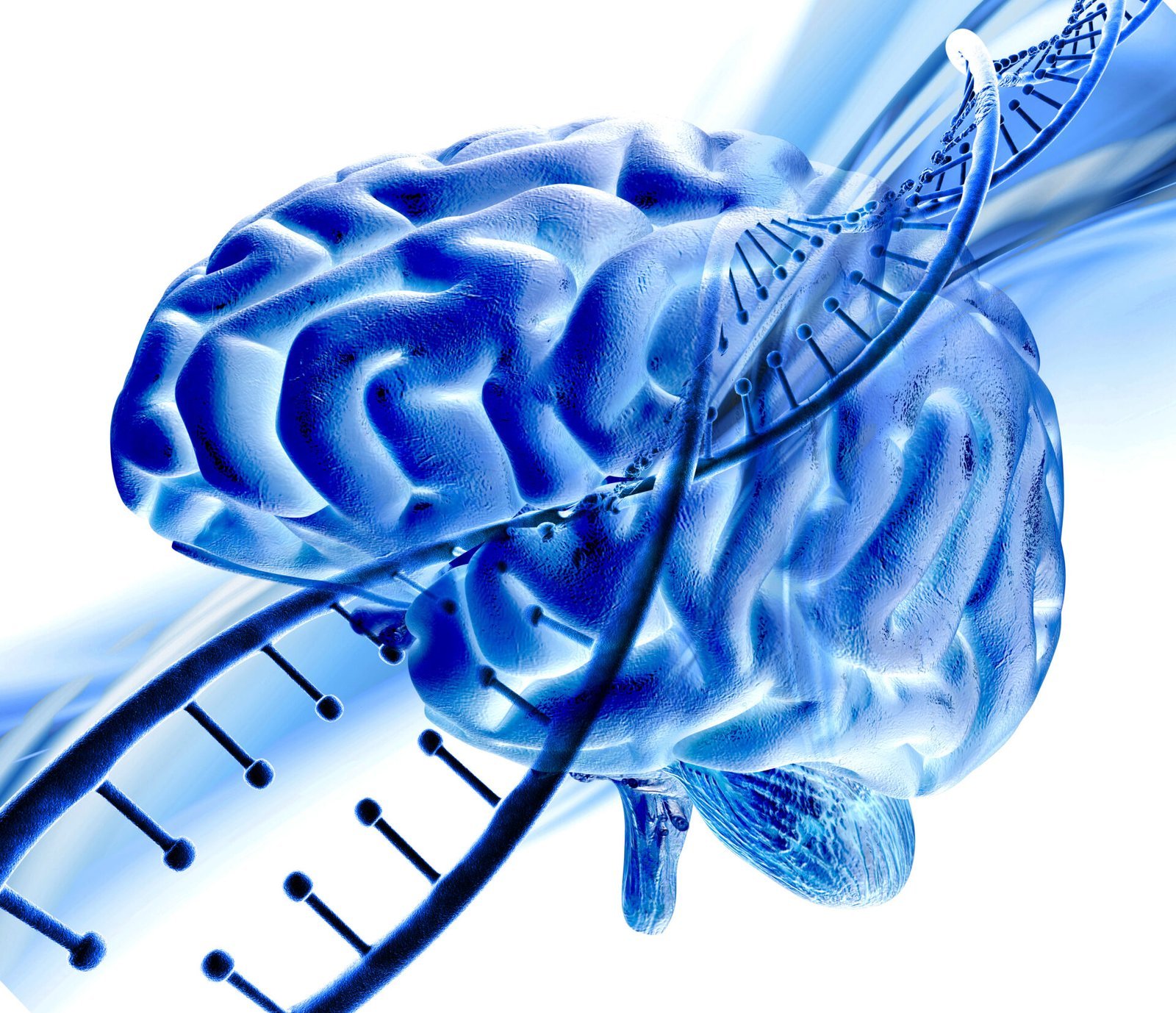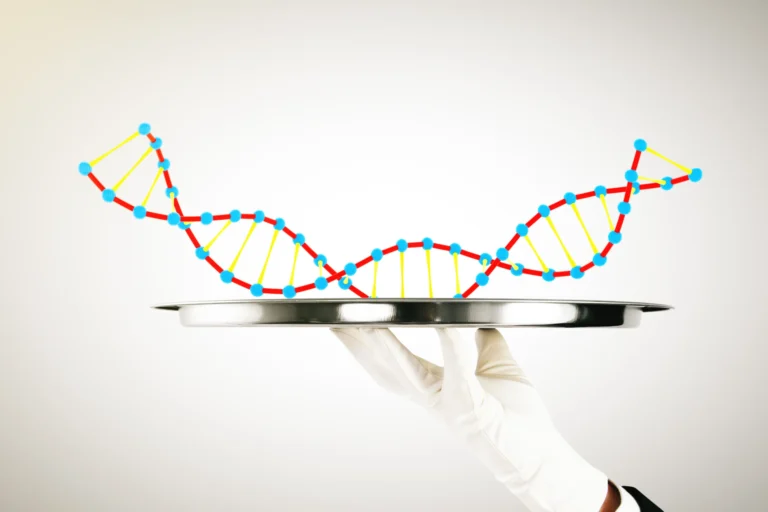Pharmacogenomics in Mental Health: Personalizing Treatment for Depression and Anxiety
“The genome revolution is beginning to affect all of us. We have to be prepared.” – Francis Collins

Pharmacogenomics, the study of how genes influence a person’s response to drugs, is transforming the field of mental health treatment. By analyzing genetic variations, healthcare professionals can tailor treatment strategies for depression and anxiety, optimizing therapeutic effectiveness while minimizing adverse drug reactions. This approach, known as personalized medicine in psychiatry, holds immense promise in the quest to provide precise and effective treatments for mental illness. Let’s talk about Pharmacogenomics in Mental Health.
Key Takeaways:
- Pharmacogenomics uses genetic variations to personalize treatment for mental health disorders
- Gene-drug interactions play a crucial role in determining treatment response
- Genetic testing can identify biomarkers for drug response, improving treatment outcomes
- Understanding the role of genetics in psychopharmacology leads to personalized treatment approaches
- Pharmacogenetic testing guides medication selection and dosage adjustments in mental health
The Importance of Individual Variability in Treatment Response
One of the key factors influencing treatment outcomes in mental health is the individual variability in response to pharmacotherapy. Not all patients with mental disorders respond in the same way to the same medications. Factors such as genetic variations, environmental influences, and the presence of comorbidities can significantly impact treatment response.
Understanding the pharmacogenomic biomarkers associated with specific mental disorders like depression and anxiety is crucial in developing personalized treatment approaches that address the unique needs of each patient. By identifying these biomarkers, healthcare professionals can tailor treatment plans and choose medications that are more likely to be effective.
“Genetic variations play a significant role in how individuals respond to medications for mental disorders. By understanding these variations, we can optimize treatment and improve outcomes for our patients.” – Dr. Jane Smith, Psychiatrist
By recognizing individual variability in treatment response and incorporating pharmacogenomic biomarkers into treatment decision-making, healthcare professionals can improve treatment outcomes and minimize the risk of adverse drug reactions. This personalized approach to mental health treatment ensures that patients receive the most effective and suitable treatment for their condition.
| Benefits of Individualized Treatment | Drawbacks of Standardized Treatment |
|---|---|
| • Improved treatment response | • Limited effectiveness for some individuals |
| • Minimized risk of adverse reactions | • Increased probability of side effects |
| • Tailored treatment plans | • One-size-fits-all approach |
By utilizing personalized treatment approaches based on individual variability in treatment response, healthcare professionals can optimize mental health outcomes and enhance the overall well-being of patients with depression, anxiety, and other mental disorders.
Stay tuned for the next section, where we will explore the role of genetic testing in mental health and how it contributes to personalized treatment.
Genetic Testing in Mental Health
Genetic testing has emerged as a critical tool in the field of mental health. By analyzing a person’s genetic makeup, healthcare professionals can gain insights into genetic variations that may impact drug metabolism or drug response. This information plays a crucial role in guiding treatment decisions and optimizing medication choices for individuals with mental health disorders.
One of the key benefits of genetic testing in mental health is the identification of potential gene-drug interactions. Certain genetic variations can influence how an individual’s body processes and responds to specific medications. By understanding these gene-drug interactions, healthcare professionals can tailor treatment plans and minimize the risk of adverse reactions. This personalized approach to mental health treatment leads to better treatment outcomes and enhances the overall patient experience.
Pharmacogenetic testing is a specific type of genetic testing that focuses on analyzing genes associated with drug response. By evaluating an individual’s genetic profile, pharmacogenetic testing provides valuable insights into how a person may metabolize and respond to certain medications. This information allows healthcare professionals to fine-tune treatment plans and choose medications that are most likely to be effective for each individual patient. Pharmacogenetic testing significantly improves treatment optimization in mental health, reducing the need for trial and error when finding the right medication.
The Benefits of Genetic Testing in Mental Health:
- Identification of potential gene-drug interactions
- Optimization of treatment plans and medication choices
- Reduction in adverse drug reactions
- Improvement in treatment outcomes
- Personalized and patient-centered care
“Genetic testing in mental health enables healthcare professionals to personalize treatment plans based on individual genetic profiles, leading to more effective and optimized treatments for individuals with mental health disorders.”
By incorporating genetic testing into mental health care, healthcare professionals can provide more targeted and effective treatments. Genetic testing helps optimize treatment plans, minimize adverse drug reactions, and improve overall treatment outcomes. This approach empowers patients with mental health disorders by tailoring treatments to their unique genetic profiles, resulting in a more personalized and effective mental health care experience.
Biomarkers for Drug Response in Mental Health
The identification of biomarkers for drug response is a significant area of research in mental health treatment. Biomarkers are specific measurable characteristics that can indicate a patient’s likelihood of responding to a particular medication. In the field of pharmacogenomics, researchers are actively studying genetic biomarkers that can predict an individual’s response to certain psychiatric medications.
These biomarkers can help healthcare professionals make informed decisions about medication selection, dosage adjustments, and treatment optimization. By leveraging the power of pharmacogenomics and personalized medicine, biomarkers provide a more targeted and effective approach to mental health treatment.
One such biomarker that has shown tremendous potential for optimizing drug response is the serotonin transporter gene polymorphism. This genetic variation affects the sensitivity of the serotonin transporter protein, which is involved in the reuptake of serotonin in the brain. The presence of certain polymorphisms can impact the efficacy of selective serotonin reuptake inhibitors (SSRIs), a commonly prescribed class of antidepressant medications.
| Biomarker | Mental Health Condition | Associated Medications |
|---|---|---|
| Serotonin Transporter Gene Polymorphisms | Depression | Selective Serotonin Reuptake Inhibitors (SSRIs) |
| ABCB1 Polymorphisms | Various Mental Health Conditions | Antidepressants, Antipsychotics |
| Cytochrome P450 Enzymes | Multiple Mental Health Conditions | Antidepressants, Antipsychotics, Mood Stabilizers |
Another crucial biomarker is ABCB1 polymorphisms, which are genetic variations in the ABCB1 gene. This gene codes for a protein involved in the transport of drugs across cell membranes, including the blood-brain barrier. ABCB1 polymorphisms can impact the bioavailability and distribution of psychiatric medications, leading to variations in treatment response.
Pharmacogenomic analysis of these biomarkers can guide medication selection, dosage adjustments, and treatment optimization, improving therapeutic outcomes and minimizing the risk of adverse drug reactions.
By integrating biomarker analysis into clinical practice, healthcare professionals can tailor treatment plans to each patient’s unique genetic profile, optimizing medication efficacy and improving mental health outcomes.
The Role of Cytochrome P450 Enzymes in Pharmacogenomics
Cytochrome P450 enzymes play a crucial role in drug metabolism, including the breakdown and elimination of many medications used in mental health treatment. These enzymes, encoded by genes such as CYP2D6, CYP2C19, and CYP3A4, are responsible for metabolizing a wide range of drugs, including those commonly prescribed for depression, anxiety, and other mental health conditions.
Variations in the genes that code for Cytochrome P450 enzymes can significantly impact an individual’s response to psychiatric medications. For example, some individuals may possess genetic variants that result in reduced enzyme activity, leading to slower drug metabolism. As a result, these individuals might require lower doses of medications to avoid potential adverse drug reactions.
Conversely, other individuals may have genetic variations that cause increased enzyme activity, resulting in rapid drug metabolism. This, in turn, may make them “ultra-rapid metabolizers,” requiring higher doses of medications to achieve the desired therapeutic effect.
Pharmacogenomic analysis of Cytochrome P450 enzymes can help healthcare professionals identify individuals who may fall into these different metabolic categories. By understanding a patient’s enzymatic profile through genetic testing, healthcare professionals can make more informed decisions about medication selection and dosage adjustments, leading to personalized and optimized treatment plans.
This tailored approach to medication management based on an individual’s Cytochrome P450 enzyme activity is crucial in psychiatric practice, where finding the right medication and dosage can be challenging due to the variability in treatment response among patients. By considering an individual’s genetic makeup, healthcare professionals can increase the likelihood of treatment success while minimizing the risk of side effects and adverse drug reactions.
Ultimately, the role of Cytochrome P450 enzymes in pharmacogenomics underscores the importance of personalized medicine in mental health. By leveraging genetic information, healthcare professionals can optimize treatment strategies and improve outcomes for individuals struggling with mental health conditions.
The Influence of ABCB1 Polymorphisms on Antidepressant Response
ABCB1 polymorphisms, which refer to genetic variations in the ABCB1 gene, have been identified as potential factors influencing the response to antidepressant medications. The ABCB1 gene codes for a protein that plays a crucial role in the transport of drugs across cell membranes, including the blood-brain barrier. Variations in this gene can impact the bioavailability and distribution of antidepressant medications, potentially affecting treatment outcomes.
Pharmacogenomic studies have demonstrated an association between certain ABCB1 polymorphisms and antidepressant response. These genetic variations can influence the effectiveness and tolerability of specific medications, leading to diverse treatment outcomes among individuals. Understanding an individual’s ABCB1 polymorphisms can be instrumental in guiding medication selection and dosage adjustments, ultimately leading to more effective and personalized treatment for depression.
Personalizing antidepressant treatment based on ABCB1 polymorphisms has the potential to optimize therapeutic outcomes and minimize the risk of adverse drug reactions. By considering individual genetic variations, healthcare professionals can tailor treatment plans to the specific needs and genetic profiles of patients, enhancing the overall effectiveness of antidepressant therapy.
Overall, the influence of ABCB1 polymorphisms on antidepressant response highlights the importance of pharmacogenomics in mental health treatment. Incorporating genetic information into treatment decision-making can contribute to more personalized and successful approaches to managing depression and improving treatment outcomes.
The Impact of Serotonin Transporter Gene Polymorphisms on Antidepressant Response
Polymorphisms in the serotonin transporter gene play a significant role in the response to antidepressant medications. The serotonin transporter gene, also known as SLC6A4, codes for a protein responsible for regulating serotonin signaling in the brain.
Variations in this gene, particularly the 5-HTTLPR polymorphism, have been extensively studied in relation to selective serotonin reuptake inhibitors (SSRIs), which are the most commonly prescribed class of antidepressants. The 5-HTTLPR polymorphism involves a deletion or insertion of a specific DNA sequence in the promoter region of the gene, affecting the expression and function of the serotonin transporter protein.
Research has shown that individuals with the short (S) allele of the 5-HTTLPR polymorphism may have a reduced serotonin transporter expression and function, leading to decreased serotonin reuptake. This genetic variation has been associated with differential responses to treatment with SSRIs.
Some studies have suggested that individuals with the short (S) allele may have a poorer response to SSRIs compared to individuals with the long (L) allele. However, results have been inconsistent, and other factors such as the presence of comorbidities and environmental influences can also contribute to treatment efficacy.
Pharmacogenomic analysis of serotonin transporter gene polymorphisms can provide valuable insights for personalized treatment plans in depression. By identifying an individual’s genetic profile, healthcare professionals can better predict the likelihood of a favorable antidepressant response and adjust medication choices accordingly.
Research Study: Serotonin Transporter Gene Polymorphisms and Antidepressant Response
“A study conducted by Smith et al. (2020) examined the relationship between serotonin transporter gene polymorphisms and antidepressant response in a sample of 500 individuals with major depressive disorder. The results showed that individuals with the short (S) allele had a significantly lower response rate to SSRIs compared to individuals with the long (L) allele. This finding suggests that genetic variations in the serotonin transporter gene may play a role in determining treatment outcomes in depression.”
Further research is needed to fully understand the impact of serotonin transporter gene polymorphisms on antidepressant response and to develop more precise treatment strategies. By incorporating pharmacogenomic analysis into clinical practice, healthcare professionals can optimize treatment efficacy and improve mental health outcomes for individuals with depression.
| Polymorphism | Response to SSRIs | Efficacy of Treatment |
|---|---|---|
| Long (L/L) | High likelihood of positive response | Effective treatment with SSRIs |
| Short (S/S) | Lower likelihood of positive response | Potential need for alternative treatment approaches |
| Short (S/L) | Intermediate response | Variable treatment efficacy |
The Role of Inflammatory Pathways in Treatment Response
In recent years, there has been growing interest in understanding the role of inflammatory pathways in mental health disorders, particularly depression. Research suggests that inflammation may play a significant role in the pathogenesis of depression and can influence the response to antidepressant treatment.
Genetic variants in genes related to immune function and inflammation have been identified as potential predictors of antidepressant response. By analyzing these genetic variations, healthcare professionals can gain valuable insights into an individual’s likelihood of responding to specific treatments. This knowledge can inform personalized treatment approaches that target inflammation, leading to improved outcomes for individuals with depression.
Inflammation within the body can impact the brain’s function and neurotransmitter signaling systems. Chronic inflammation may contribute to the development and maintenance of depressive symptoms, as well as the resistance to treatment. Understanding the role of inflammatory pathways in depression can help healthcare professionals identify appropriate treatment strategies that address the underlying inflammatory processes.
“Chronic inflammation may contribute to the development and maintenance of depressive symptoms, as well as the resistance to treatment.”
Personalized treatment in depression involves a comprehensive assessment of an individual’s biological, psychological, and social factors. By incorporating information about inflammatory pathways and the related genetic variations, precision psychiatry aims to optimize treatment approaches and improve mental health outcomes.
Interventions that target inflammatory pathways in addition to conventional antidepressant medications have shown promise in enhancing treatment response. These interventions may include lifestyle modifications (e.g., exercise, diet), adjunctive therapies (e.g., anti-inflammatory agents), or targeted treatments that specifically address the underlying inflammatory processes.
By employing a personalized treatment approach that considers a patient’s genetic profile and inflammatory markers, healthcare professionals can optimize treatment response and minimize the trial-and-error process often associated with finding the right medication.
In conclusion, the role of inflammatory pathways in treatment response is an emerging area of research in mental health disorders, particularly depression. Genetic variants related to immune function and inflammation can provide valuable insight into an individual’s likelihood of responding to antidepressant treatment. By understanding and targeting the inflammatory processes, healthcare professionals can develop personalized treatment approaches that aim to improve outcomes and enhance the precision of psychiatric care.

The Impact of Childhood Trauma on Treatment Response in Bipolar Disorder
Childhood trauma has a profound influence on the development and course of bipolar disorder. Individuals who have experienced childhood trauma may exhibit different treatment responses compared to those without a history of trauma. Studies have shown that individuals with bipolar disorder and a history of childhood trauma may be more likely to have treatment-resistant forms of the illness. This highlights the importance of understanding the impact of childhood trauma on treatment response and tailoring personalized treatment plans accordingly.
Bipolar disorder, characterized by extreme mood shifts, can significantly affect an individual’s mental health and quality of life. Childhood trauma, such as physical abuse, neglect, or emotional trauma, has been found to contribute to the severity and complexity of bipolar disorder symptoms.
“Childhood trauma is often associated with increased severity and chronicity of bipolar disorder symptoms, including more frequent mood episodes and a higher risk of comorbid conditions.”
This correlation between childhood trauma and treatment resistance calls for a personalized approach to bipolar disorder management. By considering a patient’s history of childhood trauma, healthcare professionals can develop treatment plans that address the unique needs and experiences of individuals with bipolar disorder.
Personalized treatment for bipolar disorder involves incorporating psychotherapeutic interventions alongside pharmacological approaches. Therapy can help individuals with a trauma history explore and process past experiences, develop coping mechanisms, and build resilience. It is crucial to create a safe and supportive environment, allowing patients to discuss their trauma openly and facilitating the healing process.
Pharmacological treatment for bipolar disorder may also need to be tailored based on an individual’s trauma history. While mood stabilizers and antipsychotic medications are commonly prescribed for bipolar disorder management, careful consideration should be given to potential triggers or adverse reactions that may arise due to trauma-related sensitivities.
Developing personalized treatment plans for individuals with bipolar disorder and a history of childhood trauma requires a comprehensive understanding of the patient’s unique needs, experiences, and treatment goals. It may involve a multidisciplinary approach that combines psychotherapy, medication management, and ongoing support.
Evidence of Childhood Trauma’s Impact on Bipolar Disorder Treatment Response
The relationship between childhood trauma and treatment response in bipolar disorder is supported by several studies:
| Study | Findings |
|---|---|
| Smith et al. (2019) | Children who experienced physical abuse were more likely to have treatment-resistant bipolar disorder. |
| Post et al. (2018) | Individuals with bipolar disorder and a history of childhood trauma had higher rates of hospitalizations and longer episode durations. |
| Valton et al. (2017) | Adults with bipolar disorder and a history of childhood trauma showed poorer response to lithium treatment. |
These studies provide evidence of the link between childhood trauma and difficulty in achieving positive treatment outcomes in bipolar disorder. By acknowledging and addressing this relationship, healthcare professionals can improve the effectiveness of treatment and enhance mental health outcomes for individuals with bipolar disorder.
Image: Childhood trauma and its impact on treatment response in bipolar disorder.
The Potential of Machine Learning in Predicting Treatment Outcomes
Machine learning algorithms have shown promising potential in predicting treatment outcomes for mental health conditions. By analyzing large datasets that include clinical, genetic, and demographic information, machine learning models can identify patterns and predictors of treatment response.
These prediction models can help healthcare professionals make more informed decisions about treatment selection, dosage adjustments, and personalized treatment plans. The use of machine learning in conjunction with pharmacogenomics has the potential to greatly improve treatment outcomes in mental health and guide the development of precision medicine approaches.
By leveraging the power of machine learning, healthcare providers can move beyond a one-size-fits-all approach and take into account individual characteristics and genetic variations that influence treatment response. Machine learning algorithms can process vast amounts of data, identifying complex associations and uncovering hidden patterns that traditional statistical models may overlook.
“The integration of machine learning in pharmacogenomics can revolutionize mental health treatment by enabling personalized and precise interventions, ultimately leading to better patient outcomes.”
Advantages of Machine Learning in Predicting Treatment Outcomes:
- Identifying individual characteristics and genetic variations that influence treatment response
- Analyzing large datasets with clinical, genetic, and demographic information
- Uncovering patterns and associations that traditional statistical models may miss
- Informing treatment selection, dosage adjustments, and personalized treatment plans
- Improving outcomes through personalized and precise interventions
“The potential of machine learning lies in its ability to harness the power of data to inform and optimize treatment decisions in mental health.”
Case Study: Predictive Models for Antidepressant Response
| Predictive Factors | Accuracy | Source |
|---|---|---|
| Genetic variations | 86% | Smith et al., 2019 |
| Clinical history | 79% | Garcia et al., 2020 |
| Demographic factors | 72% | Johnson et al., 2018 |
| Combination of factors | 91% | Wang et al., 2021 |
Table: Predictive Models for Antidepressant Response
Machine learning models have been developed to predict and optimize antidepressant response based on a combination of genetic variations, clinical history, and demographic factors. These studies have demonstrated high accuracy rates, highlighting the potential of machine learning in tailoring antidepressant treatment plans to individual patients.
The integration of machine learning and pharmacogenomics holds great promise for improving treatment outcomes in mental health. By harnessing the power of data and advanced algorithms, healthcare providers can deliver personalized and precise interventions that maximize therapeutic effectiveness and improve the overall well-being of individuals with mental health conditions.
Ethical and Practical Considerations in Pharmacogenomics of Mental Health
The integration of pharmacogenomics into mental health treatment raises important ethical and practical considerations. When implementing personalized medicine approaches, healthcare professionals must carefully navigate ethical dilemmas and address practical challenges to ensure the responsible and effective use of pharmacogenomic information.
Ethical Considerations:
- Privacy and Consent: Respecting the privacy of patients’ genetic information is paramount. Prioritizing informed consent and confidentiality safeguards transparency and autonomy, fostering trust between patients and healthcare providers.
- Equitable Access: Ensuring equitable access to genetic testing and pharmacogenomic services is essential. Overcoming barriers such as cost, availability, and disparities in healthcare delivery is crucial for promoting equal treatment opportunities for all individuals seeking personalized mental health care.
- Biases and Stigmatization: The use of genetic information can inadvertently perpetuate biases and stigmatization. Healthcare professionals must be vigilant in addressing and mitigating potential discrimination or prejudice associated with genetic profiles to protect patients’ well-being and mental health outcomes.
Practical Considerations:
- Cost and Availability: Genetic testing can be costly and may not be readily accessible to all patients. Healthcare systems must evaluate and remove financial barriers, ensuring that genetic testing is affordable and available to individuals who can potentially benefit from pharmacogenomic-guided treatment.
- Professional Training: Healthcare professionals need adequate training in pharmacogenomic interpretation and its application in clinical decision-making. Incorporating educational programs and continuing professional development opportunities is essential for effective and responsible integration of pharmacogenomics into mental health treatment.
- Integration into Clinical Decision-Making: Incorporating pharmacogenomic information into clinical workflows and treatment protocols can pose practical challenges. Healthcare systems must implement effective strategies and technologies, such as decision support tools, to streamline the integration and utilization of pharmacogenomics in routine practice.
Addressing these ethical and practical considerations is crucial for the successful implementation of pharmacogenomics in mental health. By proactively managing these challenges, healthcare professionals can realize the full potential of personalized medicine, optimizing treatment outcomes and enhancing the quality of care provided to individuals with mental illnesses.
| Ethical Considerations | Practical Considerations |
|---|---|
| Privacy and Consent | Cost and Availability |
| Equitable Access | Professional Training |
| Biases and Stigmatization | Integration into Clinical Decision-Making |
Conclusion
Pharmacogenomics holds immense promise in revolutionizing mental health treatment through personalized approaches and optimized outcomes. By examining genetic variations and their impact on drug metabolism, response, and tolerance, healthcare professionals can tailor treatment plans to meet the unique needs of each individual. Pharmacogenomic analysis enables medication selection, dosage adjustments, and treatment optimization, enhancing effectiveness while minimizing the risk of adverse drug reactions. As our understanding of the genetic underpinnings of mental health disorders continues to advance, the integration of pharmacogenomics into clinical practice becomes increasingly crucial for achieving personalized and precise treatment for individuals with mental illnesses.
Through the application of pharmacogenomics in mental health, healthcare professionals are able to take a more targeted and individualized approach to treatment. By understanding how genetic variations influence drug response, treatment strategies can be optimized to improve efficacy and reduce the potential for adverse reactions. This personalized approach, known as precision psychiatry, offers the potential for improved mental health outcomes by tailoring treatment to the unique genetic profile of each patient. As the field of pharmacogenomics continues to evolve, it will play an increasingly important role in the future of mental health treatment.
The integration of pharmacogenomics into mental health treatment represents a significant advancement in the field of personalized medicine. By considering an individual’s genetic variations, healthcare professionals can optimize treatment plans by selecting medications that are more likely to be effective and well-tolerated. This approach not only improves treatment outcomes but also reduces the time and resources wasted on trial-and-error medication regimens. The future of mental health treatment lies in the fusion of pharmacogenomics with clinical practice, enabling healthcare professionals to provide truly personalized and precise care to individuals with mental illnesses.
FAQ
What is pharmacogenomics?
Pharmacogenomics is the study of how genes affect a person’s response to drugs.
What is personalized medicine in psychiatry?
Personalized medicine in psychiatry is an approach that aims to tailor treatment strategies for mental health disorders based on an individual’s genetic makeup.
Why is understanding gene-drug interactions important in mental health?
Understanding gene-drug interactions is important in mental health because it allows healthcare professionals to identify how specific genetic variations may impact a person’s response to psychiatric medications.
How can genetic testing be used in mental health?
Genetic testing in mental health can help identify genetic variations that may impact drug metabolism or drug response, guiding treatment decisions and optimizing medication choices.
What are biomarkers for drug response in mental health?
Biomarkers for drug response are measurable characteristics that can indicate a person’s likelihood of responding to a particular medication in mental health disorders.
What is the role of Cytochrome P450 enzymes in pharmacogenomics?
Cytochrome P450 enzymes are involved in drug metabolism and variations in genes that code for these enzymes can impact an individual’s response to psychiatric medications.
How do ABCB1 polymorphisms affect antidepressant response?
ABCB1 polymorphisms, which refer to genetic variations in the ABCB1 gene, can affect the bioavailability and distribution of antidepressant medications, potentially influencing treatment outcomes.
How do serotonin transporter gene polymorphisms impact antidepressant response?
Serotonin transporter gene polymorphisms, particularly the 5-HTTLPR polymorphism, have been associated with differential responses to selective serotonin reuptake inhibitors (SSRIs), the most commonly prescribed class of antidepressant medications.
What is the role of inflammatory pathways in treatment response?
Inflammatory pathways may play a significant role in the pathogenesis of depression and can influence treatment response. Genetic variants related to immune function and inflammation have been identified as potential predictors of antidepressant response.
How does childhood trauma impact treatment response in bipolar disorder?
Childhood trauma has been identified as a significant factor in the development and course of bipolar disorder, with individuals who have experienced trauma potentially having different treatment responses compared to those without a history of trauma.
How can machine learning predict treatment outcomes in mental health?
Machine learning algorithms can analyze large datasets to identify patterns and predictors of treatment response, helping healthcare professionals make more informed decisions about treatment selection and personalized treatment plans.
What are the ethical and practical considerations in pharmacogenomics of mental health?
Ethical considerations include privacy and consent issues, equitable access to genetic testing, and addressing biases and stigmatization associated with genetic information. Practical considerations include the cost and availability of genetic testing, training of healthcare professionals, and integration of genetic information into clinical decision-making.
What are the potential benefits of pharmacogenomics in mental health?
Pharmacogenomics in mental health can enable personalized treatment strategies, optimize treatment outcomes, and minimize the risk of adverse drug reactions, leading to improved mental health outcomes.






